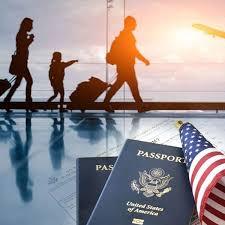The EB2 National Interest Waiver (NIW) visa is a highly sought-after immigration path for foreign professionals who wish to live and work in the United States. Unlike traditional employment-based visas, the NIW allows individuals to self-petition without needing employer sponsorship, provided their work benefits the U.S. national interest. This article explains the eligibility criteria, requirements, and process of applying for the EB2 NIW visa.
What is the EB2 NIW Visa?
The EB2 NIW visa falls under the second preference (EB2) category of employment-based immigration. It is designed for individuals who either:
-
Hold an advanced degree (Master’s or higher), or
-
Possess exceptional ability in the sciences, arts, or business.
The “NIW” component refers to the National Interest Waiver, which allows applicants to bypass the labor certification process (PERM) by proving that their contributions would significantly benefit the United States.
Key Advantages of the EB2 NIW Visa
-
No job offer or employer sponsorship required
-
No labor certification needed
-
Self-petitioning is allowed
-
Faster processing time compared to other green card routes
-
Flexibility to work in different roles or change employers
General EB2 Requirements
Before applying for a National Interest Waiver, an applicant must first qualify for the EB2 category, which includes one of the following:
1. Advanced Degree
You must have:
-
A U.S. master’s degree or higher, or
-
A foreign equivalent degree, or
-
A U.S. bachelor’s degree plus at least 5 years of progressive experience in the field
2. Exceptional Ability
You must demonstrate a degree of expertise significantly above that ordinarily encountered in your field. USCIS requires at least three of the following:
-
Academic record (degree, diploma, or certificate)
-
Letters documenting at least 10 years of full-time experience
-
License to practice your profession
-
Evidence of high salary indicating exceptional ability
-
Membership in professional associations
-
Recognition for achievements and contributions
-
Other comparable evidence
National Interest Waiver (NIW) Criteria
After establishing EB2 eligibility, you must meet the three-prong test established in the 2016 precedent decision Matter of Dhanasar. USCIS assesses whether:
1. The Proposed Endeavor Has Substantial Merit and National Importance
Your field of work should have a positive impact on the United States in terms of economy, education, public health, technology, or culture.
Examples of qualifying fields:
-
Scientific research
-
Public health initiatives
-
Renewable energy
-
Infrastructure development
-
Educational reform
2. You Are Well-Positioned to Advance the Endeavor
You must provide evidence of past success, expertise, publications, research, leadership roles, or endorsements that show you are capable of making meaningful contributions.
Documents can include:
-
CV or resume
-
Recommendation letters
-
Published papers
-
Project summaries
-
Awards or honors
3. Waiving the Job Offer and Labor Certification Benefits the U.S.
You must convince USCIS that waiving the standard requirement of a job offer is in the national interest and would benefit the country more than adhering to the traditional process.
Supporting Documents for EB2 NIW Petition
Here is a list of commonly submitted documents:
-
Form I-140 (Immigrant Petition for Alien Worker)
-
Detailed petition letter explaining how you meet all requirements
-
Academic credentials (degrees, transcripts, evaluations)
-
Proof of experience and achievements
-
Recommendation letters (preferably from independent experts)
-
Evidence of impact (citations, media coverage, patents, etc.)
-
Publications and presentations
-
Resume or CV
-
Passport and identification documents
Premium Processing
As of 2022, premium processing is available for EB2 NIW petitions. This reduces USCIS’s processing time to 15 calendar days, though it requires an additional fee. It is optional but popular among applicants seeking faster decisions.
Common Mistakes to Avoid
-
Weak or generic recommendation letters
-
Failing to show a clear connection between work and U.S. national interest
-
Not tailoring the petition to the Matter of Dhanasar criteria
-
Inadequate documentation of past accomplishments
-
Submitting outdated or irrelevant publications
Timeline and Next Steps
-
File Form I-140 along with supporting documents
-
Once approved, if in the U.S., file Form I-485 (Adjustment of Status)
-
If outside the U.S., proceed with Consular Processing
-
-
Attend a biometrics appointment
-
Wait for final approval and receive your green card



